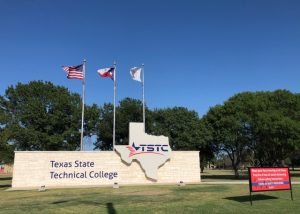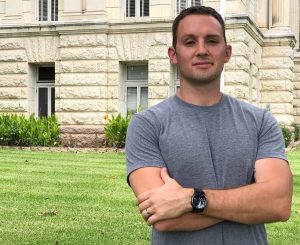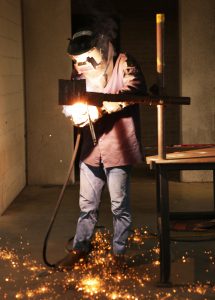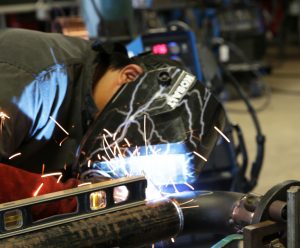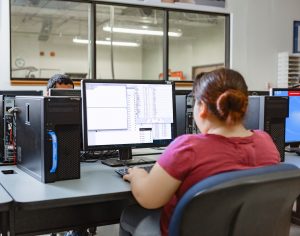(WACO, Texas) – Students attending Texas State Technical College’s Waco campus will see differences in how they learn and interact as they start the fall semester on Monday, Aug. 31.
“We are constantly looking at our process and how we can make the campus safer,” said Jerome Mendias, TSTC’s associate provost. “Safety is our priority. Knowing that we treat safety in such a manner is true to how we are looking at being on campus during this time.”
Students will see ample signage promoting campus health and safety, as well as more hand-sanitizing stations. Students will need to wear face coverings at all times, and go in and out of designated entrances to campus buildings. There will be more social distancing in labs. Students will not be allowed to congregate in common areas of buildings.
One of the biggest changes is how classes will be taught, which began being modified in late March.
Programs that will be in an all-online format this fall are Architectural and Civil Drafting Technology, Cloud Computing, Computer Networking and Systems Administration, Computer Programming, Cybersecurity, Mechanical/Electrical Drafting Technology, Visual Communication Technology and Web Design and Development Technology.
Programs that will be in a hybrid format this fall are Aircraft Airframe Technology, Aircraft Pilot Training Technology, Aircraft Powerplant Technology, Auto Collision and Management Technology, Automotive Technology, Biomedical Equipment Technology, Building Construction Technology, Culinary Arts, Diesel Equipment Technology, Electrical Construction, Electrical Lineworker Technology, Electrical Power and Controls, Energy Efficiency Specialist, Facilities Management Technology, HVAC Technology, Industrial Systems, Instrumentation Technology, Medical Imaging Systems Technology, Occupational Safety Compliance Technology, Plumbing and Pipefitting Technology, Precision Machining Technology, Robotics Technology, Solar Energy Technology and Welding Technology.
Tutoring will be available virtually. Students will need to go to TSTC’s online student portal and click on the tutoring icon to fill out a form requesting help. The tutoring staff will connect students virtually to statewide tutors in their subject areas.
Student activities will look different this fall. Adele Clinton, TSTC’s executive director of Retention Services, said student leadership and engagement staff will survey students to see what events they want to see this semester. A lot of events are already planned to be held virtually. No opening date has been set for physical activities at the Murray Watson Jr. Student Recreation Center, Clinton said.
Misty Kaska, a coordinator of TSTC’s Advocacy and Resource Center, said there are plans as of now to have the annual Thanksgiving food basket giveaway and toy drive in late fall.
The food pantry and lending library will still be available. Students can contact Kaska online to fill out a request for assistance. When approved, students can make appointments with Kaska through the QLess app to pick up food or books at the student recreation center or Student Services Center.
Registration continues for the fall semester.
For more information on Texas State Technical College, go to tstc.edu.
